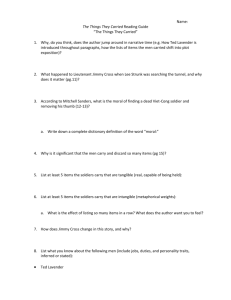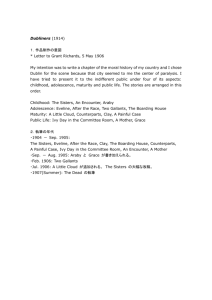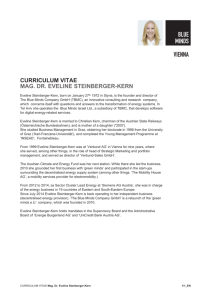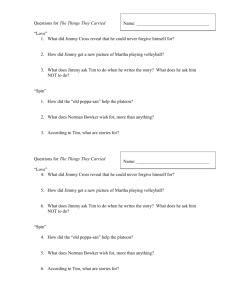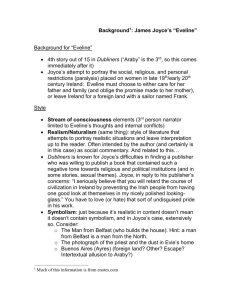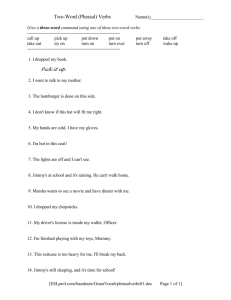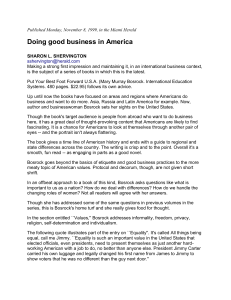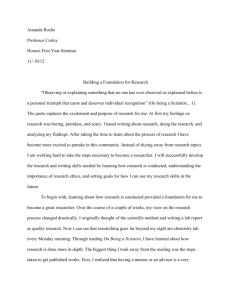“Eveline,” “After the Race,”
advertisement
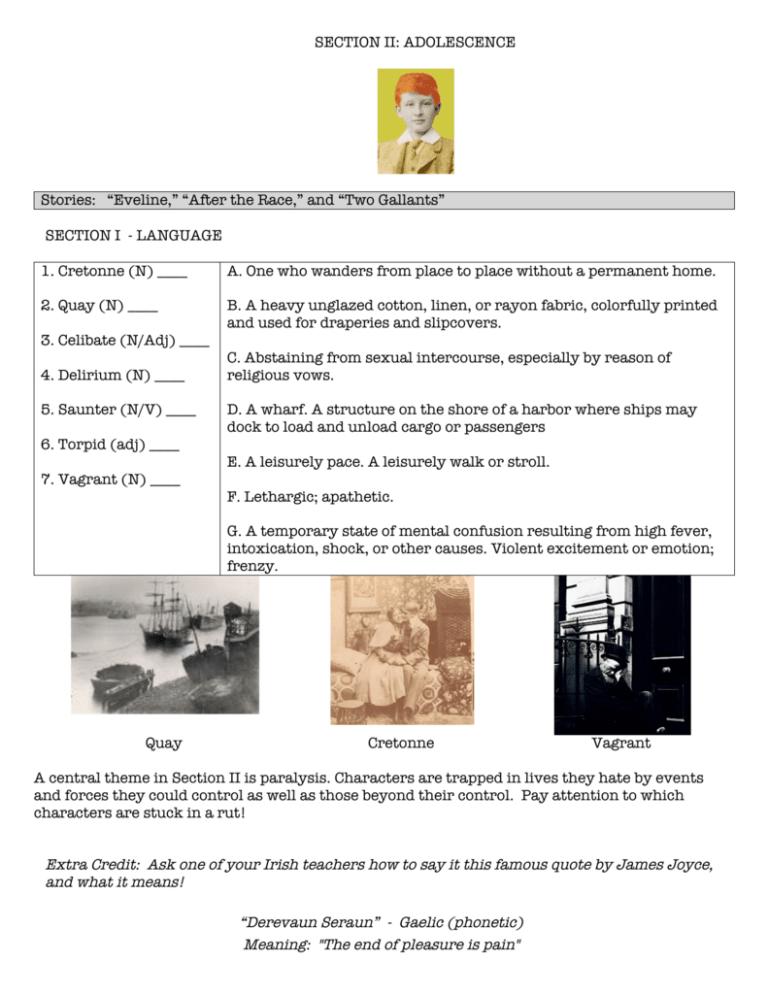
SECTION II: ADOLESCENCE Stories: “Eveline,” “After the Race,” and “Two Gallants” SECTION I - LANGUAGE 1. Cretonne (N) ____ A. One who wanders from place to place without a permanent home. 2. Quay (N) ____ B. A heavy unglazed cotton, linen, or rayon fabric, colorfully printed and used for draperies and slipcovers. 3. Celibate (N/Adj) ____ 4. Delirium (N) ____ 5. Saunter (N/V) ____ 6. Torpid (adj) ____ C. Abstaining from sexual intercourse, especially by reason of religious vows. D. A wharf. A structure on the shore of a harbor where ships may dock to load and unload cargo or passengers E. A leisurely pace. A leisurely walk or stroll. 7. Vagrant (N) ____ F. Lethargic; apathetic. G. A temporary state of mental confusion resulting from high fever, intoxication, shock, or other causes. Violent excitement or emotion; frenzy. Quay Cretonne Vagrant A central theme in Section II is paralysis. Characters are trapped in lives they hate by events and forces they could control as well as those beyond their control. Pay attention to which characters are stuck in a rut! Extra Credit: Ask one of your Irish teachers how to say it this famous quote by James Joyce, and what it means! “Derevaun Seraun” - Gaelic (phonetic) Meaning: "The end of pleasure is pain" “EVELINE” (37-43) In this story, Eveline must choose between staying with her family to raise her younger siblings or starting a new life in a new country with the man who loves her. Comprehension questions. Answer all questions in complete sentences. Remember to do these questions while reading to help guide you. “EVELINE” (pages 37-43) 1. What was the children’s biggest worry while playing in the field? (37) 2. Now that Eveline has decided to leave, what sort of things has she begun to notice and think about in her old town and house? Why? (37-38) 3. What are the advantages and disadvantages of her going away? (38-39) 4. What does her father mean by, “I know these sailor chaps”? (40) 5. How does the memory of her mother both hold her and drive her to escape? How could this be seen as paralysis?(41) 6. Does she leave with Frank or not? Why or why not? (42) “After the Race” (44-51) In this story, a young gentleman named Jimmy learns that he doesn’t have what it takes to succeed in his circle of sophisticated and glamorous international friends. 1. Describe Jimmy’s education. Why is his father secretly proud of his excesses? 2. Why has Jimmy kept his excesses within limits? What does this say about him? 3. In what is Jimmy about to invest? Does this seem to be a good investment? Why or why not? 4. Where is the party that Jimmy goes to? What game does he play at the party? Why does Jimmy continue to play cards well until daybreak? Does he win or lose? 5. What is your opinion of Jimmy? What do you think is his opinion of himself? 6. Who had an epiphany in this story? What happened? “Two Gallants” (52-65) (Gallant = One who wooes; a lover; a suitor; in a bad sense, a seducer) A not-so-young man (Lenehan) examines the shallowness and hopelessness of his life while killing time waiting for his gigolo friend Corley to swindle money from a poor working girl. Stares straight ahead, leech, burly, lots of stories and limericks, brave, sporting, son of policeman, self-centered, insensitive to discourtesy, jobless, judgmental 1. Use the words above to describe Lenehan and Corley: Lenhan: Corley: 2. What information does Lenehan want from Corley? What does his desire for this information and Corley’s giving him the information say about each of them? 3. How has Corley changed his approach to attracting and then getting what he wants from women? 4. What does Joyce’s description of the girl tell you about her? 5. Where does Corley get the gold coin? How did he get it? ACTIVITIES FOR SECTION II 1. Find popular songs which deal with the problems of each of the characters in “Adolescence” (Three songs in total: one song for each story). Provide a poster with the quotes from each song with the reason why the song connects to the book. Be ready to play the song with the appropriate equipment! Extra points for those who perform the song instead of playing it!) 2. Perform a dramatic monologue, dialogue, or skit of one of the stories read outside of class. Be sure you allow your audience to express the characters feelings. (Remember to be creative! Wear a costume! Move around and act! Change your voice and put on a brogue!) 3. Write the “unseen” conversation between Corley and the working girl (“Two Gallants”). Try to use Joyce’s writing style as much as possible. Rewrite the scene with the same characters set in 2011. 4. Research your own history/family tree and write a short story or letter from one of your ancestors: Why did your ancestors leave their mother country? What could they have been feeling at that time? What was happening at that moment politically? (Be creative! For example, put a picture of your family member or make your story look like and old letter!) 6. Interview a successful person. Develop interview questions in advance to discover how the individual achieved goal(s) and explore obstacles (internal and external) that had to be overcome. Journal Questions: A central theme in Section II is paralysis. Characters are trapped in lives they hate by events and forces they could control as well as those beyond their control. In these stories we become aware that people can become stuck or trapped in their lives. How is it possible to escape or avoid this trap? Choose of the following to do in your journal: • List future goals and outline steps to achieve these goals; list outside support needed. Write about self-created obstacles as well as those created by outside forces. • Write about leaving a familiar place for a new place (e.g., moved, changed schools). Discuss the power of familiarity and the frightening aspects of change. • Respond to the following: Have you or someone you know tried to join a group that was too old? Has anyone tried to join your group who was too young or not as sophisticated as the group? What were the results of these efforts? Challenge questions! (Extra Credit) 1. Compare and contrast the actions of Jimmy from “After the Race” to those of Eveline. To what is each attracted and for what reasons are they attracted? How will each be served by the choices they’ve made? 2. Compare and contrast the influence their parents had on Eveline and Jimmy. 3. Compare and contrast the ways in which women are depicted in each of the stories.
